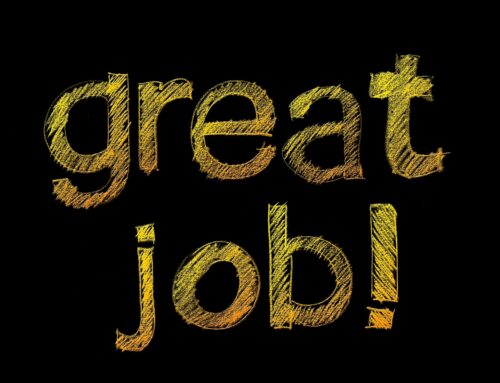I am not a big fan of New Year resolutions. Turning the calendar page from December to January does not make one eager or ready to change long-standing habits and disillusionment often follows. But there is a year-end tradition that is both reflective and proactive—taking inventory of your world with an eye toward what is working, what you want more of and less of in your life and letting go of any perceived or real failures once you have gathered whatever gems they have to offer in the way of opportunity and awareness.
You can take stock and start the year unhampered by the baggage of the past, or be crushed by persistently perusing the unpleasant. The choice of whether to be proactive is yours.
Proactivity is habit number one in “The Seven Habits of Highly Effective People” by Stephen Covey. While the word has many connotations, he focused on the space between an event or stimulus and our response to it. In that space lies the freedom to choose. We are not governed by the event, but by our self-awareness, imagination, conscience and free will. Highly proactive people “do not blame circumstances, conditions, or conditioning for their behavior. Their behavior is a product of their own conscious choice, based on values, rather than a product of their conditions, based on feeling.”
While proactivity resides in the realm of possibility, reactivity binds us to continue as before because a fixed attitude says it’s the only way. This is evident in the verbiage we select, so pay attention to the thoughts which form your words. A proactive person will say “I can choose a different approach while a reactive person may say “That’s just the way I am” or “There’s nothing I can do.” If you change your language, your mindset follows suit.
Have you ever heard a person say “I had no choice” when you can think of several alternatives to the path taken? According to Covey, this is a destructive cycle: “A serious problem with reactive language is that it becomes a self-fulfilling prophecy. People become reinforced in the paradigm that they have determined, and they produce evidence to support the belief. They feel increasingly victimized and out of control, not in charge of their life or destiny. They blame outside forces—other people, circumstances, even the stars—for their own situation.”
Everyone has concerns ranging from their health and children, to global issues like the election, terrorism and war. Proactive people focus their efforts on things they can change while reactive people wring their hands over things they cannot change or control. Do you know anyone that fits either description? Where do you tend to dwell?
Agonizing over past errors or their aftermath is not proactive because one can obviously not influence the past. If you are filled with regret, remember that you cannot undo or control what happened and make a practice of turning your attention to what you can do in the future. As you take inventory, ask yourself what you learned, what approach you could take next time, and how you can direct your feelings and energies to support yourself and generate better-feeling thoughts.
This point is exemplified by the story of Bob Ebeling, the engineer who warned NASA that the space shuttle Challenger was going to blow up on Jan. 28, 1986. According to his obituary in the New York Times, Ebeling and his colleagues “argued passionately for a postponement of the launch in conference calls with NASA managers at the Kennedy Space Center in Florida and the Marshall Space Flight Center in Huntsville, Alabama. They were overruled not only by NASA, but by their own managers.” The Challenger blew up, killing the entire crew including Christa McAuliffe, a high school teacher and the first civilian passenger in space.
After the disaster, Ebeling left engineering and faulted himself for the rest of his life for not doing enough to prevent the launch. “At times, he seemed to carry the entire burden of the disaster on his shoulders, although it was he, on the afternoon before the launch, who made a critical phone call to the engineer in charge of the solid rocket motor project at the Kennedy Space Center, alerting him to concerns … ” In an anguished interview with NPR 30 years later, Ebeling blamed God for the mistake of picking him, “a loser,” for the job. The interview moved hundreds of people to express their support and encouragement, including Ebeling’s former boss. Thirty years later, this brought his “worrisome mind to ease.”
Sadly, Ebeling spent 30 years regretting the past and feeling like a loser, rather than what he was—someone who acted upon data and spoke truth to power. He committed no error, but in the end, it simply was not his call to permit the launch to take place. Ebeling went on to do great work as a volunteer wildlife conservationist, earning a presidential award and other commendations but never recovered from the disaster of the Challenger. His obituary, which appeared in the Times on March 27, 2016, is a powerful lesson about regret, perspective and proactivity. Had Ebeling shared his views with the world earlier, he may have experienced relief sooner.
It is not possible to live without experiencing unwanted outcomes, and the key is to be proactive in managing your responses to them, rather than reactive. To do so, it is necessary to create a pause between event and response and then choose rather than react out of habit.
If you want 2017 to be different, start with being proactive as it will be the fuel that drives any specific changes you want in the future. As you take inventory of the past year, ask yourself:
- What did I do really well this year?
- What challenges did I overcome?
- What did I learn from them?
- What did I enjoy most and how can I maximize that in the future?
- What did I like least and how can I reduce it?
- What got in my way this year and what steps can I take to eliminate it?
- Which moments from the past year will I always savor?
Resist the urge to reprimand yourself harshly for mistakes as there will never be a year that is error free. Think of them as opportunities, not impediments, because we can learn much from our missteps. Move toward action rather than regret. As Covey suggests: “Make small commitments and keep them. Be a light, not a judge. Be a model, not a critic. Be part of the solution, not part of the problem.”
When you work on yourself and things you can control, your influence will grow and, along with it, your confidence. As you look over the last year, celebrate your accomplishments, perseverance and industry. You did more things well than not. Appreciation is the best fertilizer I know. Use liberally.
Reprinted with permission from the December 21, 2016 of “The Legal Intelligencer” © 2016 ALM Media Properties, LLC. All rights reserved. Further duplication without permission is prohibited. For information, contact 877-257-3382, reprints@alm.com or visit www.almreprints.com.







